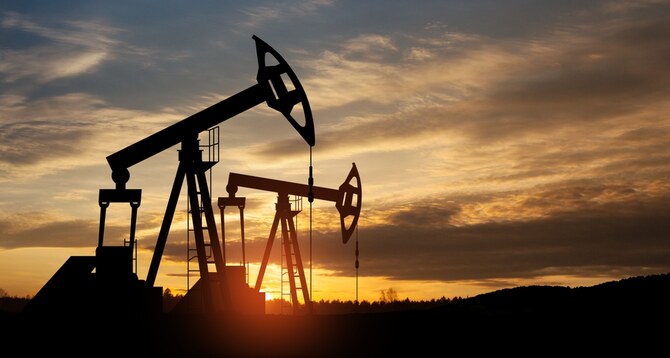LONDON: Oil climbed more than 1 percent on Wednesday, paring some of the previous day’s losses, as a drop in US crude inventories and concern about Hurricane Francine disrupting US output countered concerns about weak global demand.
US crude stocks fell by 2.793 million barrels, gasoline declined by 513,000 barrels and distillates inventories rose by 191,000 barrels, according to market sources citing the latest week’s American Petroleum Institute figures on Tuesday.
Brent crude futures were up $1.46, or 2.11 percent, to $70.65 a barrel at 12:38 p.m. Saudi time, while US crude futures gained $1.55, or 2.36 percent, to $67.30.
“The API provided some comfort as it showed a sizable decline in crude oil stocks, a forecast-beating draw in gasoline and a tiny build in distillate inventories,” said Tamas Varga of oil broker PVM.
Both oil benchmarks tanked on Tuesday, with Brent falling below $70 to its lowest since December 2021 and US crude dropping to its lowest since May 2023, after OPEC revised down its 2024 oil demand growth forecast for a second time.
Concern about Hurricane Francine disrupting output in the US, the world’s biggest producer, also lent support, other analysts said.
“The market rebounded autonomously as Tuesday’s drop was substantial,” said Yuki Takashima, economist at Nomura Securities, adding supply disruption fears from Francine also lent support.
About 24 percent of crude production and 26 percent of natural gas output in the US Gulf of Mexico were offline due to the storm, the US Bureau of Safety and Environmental Enforcement said on Tuesday.
Following Tuesday’s report from the API, an industry group, official inventory figures from the US government are due out at 5:30 p.m. Saudi time.
Eleven analysts polled by Reuters estimated on average that crude inventories rose by about 1 million barrels and gasoline stocks fell by 0.1 million barrels.
















